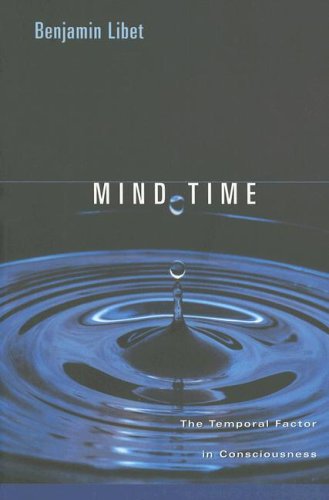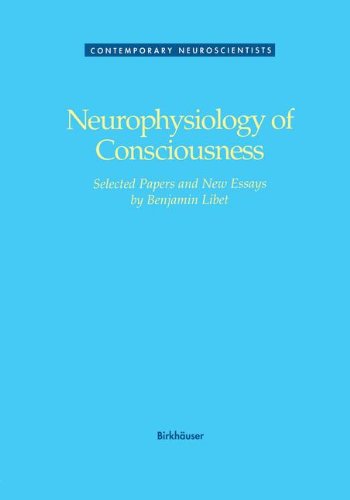Background
Libet, Benjamin was born on April 12, 1916 in Chicago, Illinois, United States. Son of Morris and Anna Libet.


( Our subjective inner life is what really matters to us...)
Our subjective inner life is what really matters to us as human beings--and yet we know relatively little about how it arises. Over a long and distinguished career Benjamin Libet has conducted experiments that have helped us see, in clear and concrete ways, how the brain produces conscious awareness. For the first time, Libet gives his own account of these experiments and their importance for our understanding of consciousness. Most notably, Libet's experiments reveal a substantial delay--the "mind time" of the title--before any awareness affects how we view our mental activities. If all conscious awarenesses are preceded by unconscious processes, as Libet observes, we are forced to conclude that unconscious processes initiate our conscious experiences. Freely voluntary acts are found to be initiated unconsciously before an awareness of wanting to act--a discovery with profound ramifications for our understanding of free will. How do the physical activities of billions of cerebral nerve cells give rise to an integrated conscious subjective awareness? How can the subjective mind affect or control voluntary actions? Libet considers these questions, as well as the implications of his discoveries for the nature of the soul, the identity of the person, and the relation of the non-physical subjective mind to the physical brain that produces it. Rendered in clear, accessible language, Libet's experiments and theories will allow interested amateurs and experts alike to share the experience of the extraordinary discoveries made in the practical study of consciousness.
http://www.amazon.com/gp/product/067401846X/?tag=2022091-20

(and made insignificant in practice, by selecting for stud...)
and made insignificant in practice, by selecting for study simple kinds of ex periences which are devoid of emotional content and which can be tested for reliability. A simple somatosensory ''raw feel" fulfills these characteristics (see papers nos. 2,5). In any case, if we fail to find ways to use introspective reports in convincingly acceptable studies we would give up the ability to investigate the relation between conscious experience and neural activity, something warned against by William James (Krech, 1969). Another factor in the dearth of direct experimental studies is, of course, the comparative inaccessibility of the human brain for such purposes. Meaningful investigations of the issue in question requires simultaneous study of brain events and introspective reports of experiences in an awake, cooperative human subject. Analysis by neuropsychologists of pathological lesions in the brain and the related disturbances of conscious functions have contributed much to mapping the pos sible representations of these functions. The non-invasive recording of electrical activity with electrodes on the scalp, starting from Berger's initial EEG record ings in 1929, has contributed much to the problems of states of consciousness and to various cognitive features associated with sensory inputs, but not as much to the specific issue of conscious experience.
http://www.amazon.com/gp/product/0817635386/?tag=2022091-20
Libet, Benjamin was born on April 12, 1916 in Chicago, Illinois, United States. Son of Morris and Anna Libet.
Bachelor of Science, University of Chicago, 1936; Doctor of Philosophy, University of Chicago, 1939.
Instructor physiology, Albany Medical College, 1939-1940; Research associate, Institute Pennsylvania Hospital, Philadelphia, 1940-1943; materials engineer personal equipment laboratory, United States Air Force, Wright Field, Ohio., 1944-1945; instructor physiology school medicine, University of Pennsylvania, Philadelphia, 1943-1944; instructor biological science, University of Chicago, 1945-1947; assistant professor physiology, University of Chicago, 1947-1948; director research, Kabat-Kaiser Institute, Vallejo, California, 1948-1949; from assistant to associate professor physiology, University of California, San Francisco, 1949-1962; professor physiology, University of California, San Francisco, 1962-1984; professor emeritus, University of California, San Francisco, since 1984.
(and made insignificant in practice, by selecting for stud...)
( Our subjective inner life is what really matters to us...)
Fellow American Association for the Advancement of Science. Member Society Neurosci., American Physiology Society.
Married Fay Rosella Evans, July 1, 1939. Children: Julian Mayer, Moreen Lea, Ralph Arnold, Gayla Bea.
